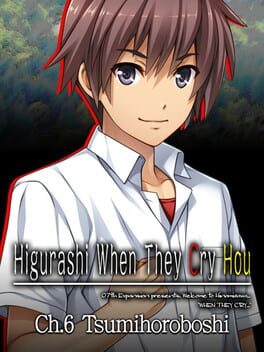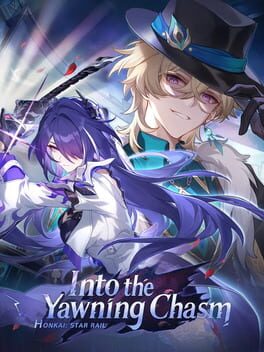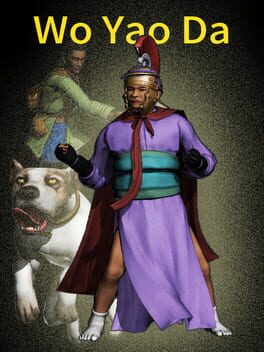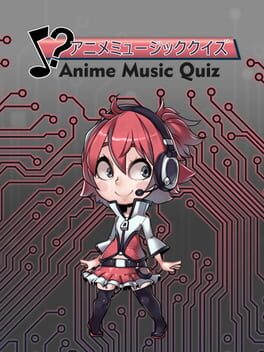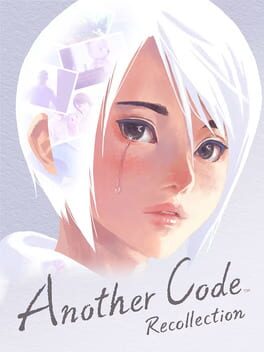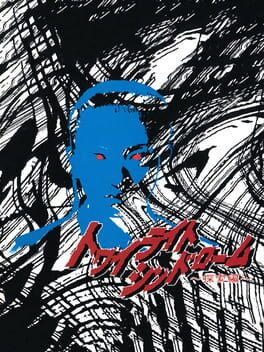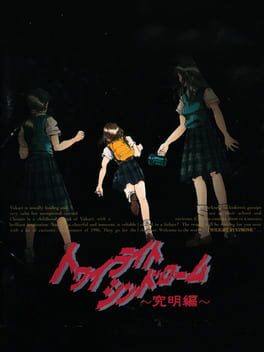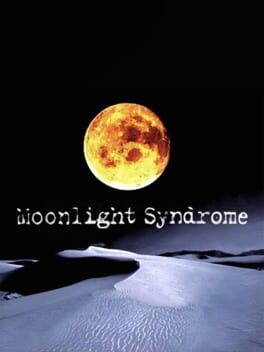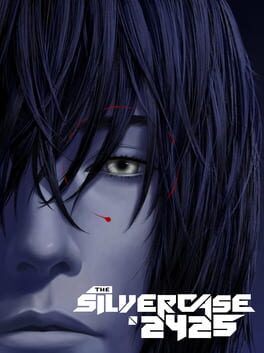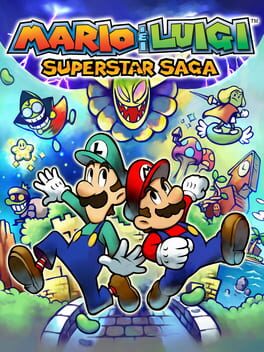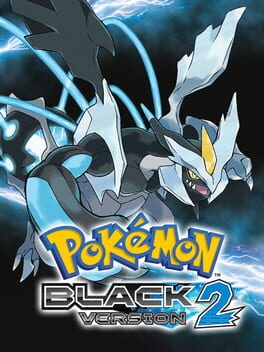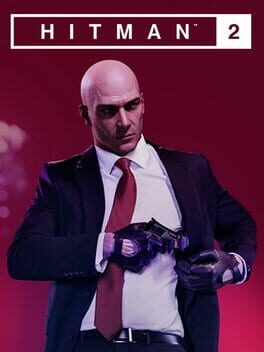126 reviews liked by Kise
Persona 3 Reload
2024
This review contains spoilers
"Tell this asshole if he wants to learn how to (re)make my product (game), he's gotta do it my way, the right way!" - Jesse Pinkman
Persona 3 Reload is ultimately a barely passable remake of what I consider the greatest game ever made. I find a large amount of the game’s flaws go ignored among the myriad conveniences the game adds, but they make the game feel like something of a hollow shell of what it used to be.
This can be seen in every aspect of the game, from the very beginning, It’s been well documented already, but the atmosphere that was dripping from the animated cutscenes of the original is completely absent. The opening scene that disorients you, makes you feel as if nothing is as it should be, is replaced with Persona 5 cutscene.mp4. It conveys the story, and that’s all it does – it’s an extension of the same flaws that purveyed Portable. This is an unfortunate trend, as in taking a variety of elements from a game that already seemed to fundamentally misunderstand the source material, it worsens it further. It draws worthless lines from portable that are only there to compensate for a lack of visuals, adds menial things like Junpei’s perversion joke in the train scene, and most offensive, adds the Portable exclusive scene after Minato returns from the final battle. Where the original cut directly from Aigis crying to 3/5, the group now have to announce their individual reactions, turning one of the most beautifully poignant scenes in the game into something standard, dull, and thoughtless.
The modern sheen the game has feels like a coat of paint that hides Reload being a fundamentally worse, less cohesive piece of art than the original. The lighting in the dorm is ruined, draining the atmosphere from one of the most prominent and beloved locations in the game. The dramatic, perfectly framed lighting of the Nyx fight (conveyed acutely in the dancing game) is replaced with…pure green, as is thoughtlessly thrown at every other dark hour scene in the game, which betrays a total lack of thought or care, and makes the game feel like a total rush job. The Orpheus awakening scene, previously a definitive tone setter that acts as the most striking piece of imagery and sound design in the series, can now only be described as underwhelming. Most to all of the little animations the models would enact that made SEES feel so well characterised and alive are absent – and why? For all the bells and whistles the game feels like a sanded down version of what was ultimately a very small-scale game.
Most script changes feel thoughtless and for the worse, making many lines less impactful for no good reason – I can appreciate the attempt to provide a more accurate script to the Japanese version, and this works in some cases, but scenes like Akihiko’s awakening are betrayed by this. Nearly every line change here feels like it lessens the impact of the scene, with worse framing to boot. This is demonstrative of a fundamental lack of understanding of the original that can be seen in the worsening of Akihiko’s character, now adjusted and simplified to be more like his P4U counterpart, one of the most horribly flanderised depictions of a character that I’ve ever seen. I don’t know why anyone on the team thought this was a good idea. Most of the cast do not suffer as much as Akihiko does, but characters like Mitsuru do to a lesser extent, with traits being further emphasised to fit into molds that have been further solidified since the release of the original. One of my favourite scenes in the game is the meeting on the roof between Minato and Junpei, acting as a perfect capstone to one of the most well-thought-out arcs and dynamics in the original game. In reload, it gets replaced with a relatively generic feeling scene between the second-year trio, for seemingly no reason – Junpei does have a link episode that I assume was meant to compensate, but it fails entirely to capture what made that scene great and ends up totally forgettable.
Nearly all of the music is definitively worse – there are highlights, such as the new remix of changing seasons, but the majority have a strangely amateur quality, with the mixing feeling frequently unprofessional. Much of the instrumentals lose all of the impact they once had and Mass Destruction is infamous for this, but for me the worst example of it is in Iwatodai Dorm. I do admittedly love the new vocals, but they can’t save how poor the rest of it sounds. What makes this even more confusing is that all of the original songs are incredible, with Colour Your Night being one of my favourite songs in the franchise, an issue that I can only imagine was from trying to hard to be different from what was already perfect.
Lastly I’ll bring up where I think the game shines – a few key areas that I think fail to elevate the overall package. The combat is wonderfully fun and fluid, and I think theurgies are a satisfactory evolution of the showtime mechanic, but this is undercut by how ludicrously easy the game becomes with barely any effort, an issue that extends to even merciless. While the original was ultimately not a hard game, Reload becomes essentially thoughtless if you know what you’re doing. The combat animations are one of my favourite things the game does, with the way each character shifts to the other never getting tiresome, conveying their personalities and dynamics perfectly. Another is a few of the new character pieces added – I think the game massively elevates Shinjiro and Ken, the tragedy of both characters being emphasised in a way that only makes them more compelling, and Ryoji especially benefits from the greater degree of screentime Reload gives him. I’m glad the bond between him and Minato is now firmly grounded in a version other than the movies.
Personally, I think Persona 3 Reload is a disappointment, and not because it fails to be the “definitive” version many begrudged it for not being. It misunderstands, ignores and discards much of what made the original great, and it fails in aspects I could have never anticipated it would; I think the way the original uniquely excels deserves to be recognised. I still like the game overall, because the skeleton is one of my favourite things ever. But if I had to choose between Reload’s existence and a simple port of FES that bumped up the framerate, it would be an incredibly easy choice; a game that feels so deliberate against a pale imitation.
Persona 3 Reload is ultimately a barely passable remake of what I consider the greatest game ever made. I find a large amount of the game’s flaws go ignored among the myriad conveniences the game adds, but they make the game feel like something of a hollow shell of what it used to be.
This can be seen in every aspect of the game, from the very beginning, It’s been well documented already, but the atmosphere that was dripping from the animated cutscenes of the original is completely absent. The opening scene that disorients you, makes you feel as if nothing is as it should be, is replaced with Persona 5 cutscene.mp4. It conveys the story, and that’s all it does – it’s an extension of the same flaws that purveyed Portable. This is an unfortunate trend, as in taking a variety of elements from a game that already seemed to fundamentally misunderstand the source material, it worsens it further. It draws worthless lines from portable that are only there to compensate for a lack of visuals, adds menial things like Junpei’s perversion joke in the train scene, and most offensive, adds the Portable exclusive scene after Minato returns from the final battle. Where the original cut directly from Aigis crying to 3/5, the group now have to announce their individual reactions, turning one of the most beautifully poignant scenes in the game into something standard, dull, and thoughtless.
The modern sheen the game has feels like a coat of paint that hides Reload being a fundamentally worse, less cohesive piece of art than the original. The lighting in the dorm is ruined, draining the atmosphere from one of the most prominent and beloved locations in the game. The dramatic, perfectly framed lighting of the Nyx fight (conveyed acutely in the dancing game) is replaced with…pure green, as is thoughtlessly thrown at every other dark hour scene in the game, which betrays a total lack of thought or care, and makes the game feel like a total rush job. The Orpheus awakening scene, previously a definitive tone setter that acts as the most striking piece of imagery and sound design in the series, can now only be described as underwhelming. Most to all of the little animations the models would enact that made SEES feel so well characterised and alive are absent – and why? For all the bells and whistles the game feels like a sanded down version of what was ultimately a very small-scale game.
Most script changes feel thoughtless and for the worse, making many lines less impactful for no good reason – I can appreciate the attempt to provide a more accurate script to the Japanese version, and this works in some cases, but scenes like Akihiko’s awakening are betrayed by this. Nearly every line change here feels like it lessens the impact of the scene, with worse framing to boot. This is demonstrative of a fundamental lack of understanding of the original that can be seen in the worsening of Akihiko’s character, now adjusted and simplified to be more like his P4U counterpart, one of the most horribly flanderised depictions of a character that I’ve ever seen. I don’t know why anyone on the team thought this was a good idea. Most of the cast do not suffer as much as Akihiko does, but characters like Mitsuru do to a lesser extent, with traits being further emphasised to fit into molds that have been further solidified since the release of the original. One of my favourite scenes in the game is the meeting on the roof between Minato and Junpei, acting as a perfect capstone to one of the most well-thought-out arcs and dynamics in the original game. In reload, it gets replaced with a relatively generic feeling scene between the second-year trio, for seemingly no reason – Junpei does have a link episode that I assume was meant to compensate, but it fails entirely to capture what made that scene great and ends up totally forgettable.
Nearly all of the music is definitively worse – there are highlights, such as the new remix of changing seasons, but the majority have a strangely amateur quality, with the mixing feeling frequently unprofessional. Much of the instrumentals lose all of the impact they once had and Mass Destruction is infamous for this, but for me the worst example of it is in Iwatodai Dorm. I do admittedly love the new vocals, but they can’t save how poor the rest of it sounds. What makes this even more confusing is that all of the original songs are incredible, with Colour Your Night being one of my favourite songs in the franchise, an issue that I can only imagine was from trying to hard to be different from what was already perfect.
Lastly I’ll bring up where I think the game shines – a few key areas that I think fail to elevate the overall package. The combat is wonderfully fun and fluid, and I think theurgies are a satisfactory evolution of the showtime mechanic, but this is undercut by how ludicrously easy the game becomes with barely any effort, an issue that extends to even merciless. While the original was ultimately not a hard game, Reload becomes essentially thoughtless if you know what you’re doing. The combat animations are one of my favourite things the game does, with the way each character shifts to the other never getting tiresome, conveying their personalities and dynamics perfectly. Another is a few of the new character pieces added – I think the game massively elevates Shinjiro and Ken, the tragedy of both characters being emphasised in a way that only makes them more compelling, and Ryoji especially benefits from the greater degree of screentime Reload gives him. I’m glad the bond between him and Minato is now firmly grounded in a version other than the movies.
Personally, I think Persona 3 Reload is a disappointment, and not because it fails to be the “definitive” version many begrudged it for not being. It misunderstands, ignores and discards much of what made the original great, and it fails in aspects I could have never anticipated it would; I think the way the original uniquely excels deserves to be recognised. I still like the game overall, because the skeleton is one of my favourite things ever. But if I had to choose between Reload’s existence and a simple port of FES that bumped up the framerate, it would be an incredibly easy choice; a game that feels so deliberate against a pale imitation.
This review contains spoilers
If Yakuza and Higurashi chapter 6 showed me anything, it's the fact that I'll need to find myself a friend good enough to fight me to death on a rooftop.
Sheep Counts
Going into this from chapter 5 I was expecting another 'Alternate POV' retelling. Whilst I like chapter 5, I felt that it was ultimately on the predictable side of things. Luckily chapter 6 goes its own way, and tells its own story whilst not missing out on answering questions that were had prior.
Night When the Invisible Scares You
Teetering on the edge of truths, untruths and paranoia, the story woven here embraces the strongest aspect of its main counterpiece, Onikakushi. What is real? What can be trusted? Does the truth lie in cult? curse? something more? something less? something inbetween? Both rewarding and discouraging in the hunt for answers, the characters' alliances keep you guessing as more information becomes apparent.
Wandering Words Lead to Heaven
Throughout this entry of the series Keiichi and Rena grew on me a lot. I already really liked Keiichi as a protagonist I 'get', and this chapter further solidified that. Rena is a character I also deeply adore, and she proved herself to be the strongest supporting cast member to me in this chapter. Any scene where they share their spotlight together can blow almost anything else in the series out of the water. The final scene is easily the strongest part of the series so far, and I am very curious if Ryukishi will manage to top it in the remaining chapters.
I'll put some trust in the answers.
Sheep Counts
Going into this from chapter 5 I was expecting another 'Alternate POV' retelling. Whilst I like chapter 5, I felt that it was ultimately on the predictable side of things. Luckily chapter 6 goes its own way, and tells its own story whilst not missing out on answering questions that were had prior.
Night When the Invisible Scares You
Teetering on the edge of truths, untruths and paranoia, the story woven here embraces the strongest aspect of its main counterpiece, Onikakushi. What is real? What can be trusted? Does the truth lie in cult? curse? something more? something less? something inbetween? Both rewarding and discouraging in the hunt for answers, the characters' alliances keep you guessing as more information becomes apparent.
Wandering Words Lead to Heaven
Throughout this entry of the series Keiichi and Rena grew on me a lot. I already really liked Keiichi as a protagonist I 'get', and this chapter further solidified that. Rena is a character I also deeply adore, and she proved herself to be the strongest supporting cast member to me in this chapter. Any scene where they share their spotlight together can blow almost anything else in the series out of the water. The final scene is easily the strongest part of the series so far, and I am very curious if Ryukishi will manage to top it in the remaining chapters.
I'll put some trust in the answers.
Wo Yao Da
2017
Games exist with a purpose. Impart something on the player, gather a fanbase, and maybe make some money back. This is, of course the natural way of things, you poured your heart and soul into making something, you want to be rewarded for it, you want people to love it.
But there is something special about a game that.... Simply exists. This isn't a game that is made to garner attention. It's a game that's made. On the 16th of September in 2017 this was uploaded to the Steam store, with 245 reviews, and going for €2,99, or €0.75 on sale.
It is my sincerest hope that, years from now, someone will stumble across this game like I did, buy it with remaining funds and have fun. This is something that exists for that purpose. Perceive the ridiculousness, maybe ask a couple friends to join you, and revel in the existence of people's passion in a way you might not have done before.
But there is something special about a game that.... Simply exists. This isn't a game that is made to garner attention. It's a game that's made. On the 16th of September in 2017 this was uploaded to the Steam store, with 245 reviews, and going for €2,99, or €0.75 on sale.
It is my sincerest hope that, years from now, someone will stumble across this game like I did, buy it with remaining funds and have fun. This is something that exists for that purpose. Perceive the ridiculousness, maybe ask a couple friends to join you, and revel in the existence of people's passion in a way you might not have done before.
Persona 3 Reload
2024
The phrase “x story helped me out during a rough time” is used commonly to elaborate on how much a piece of media has helped someone out, but I can’t say that about Persona 3, primarily because it’s a story that has taken root inside me deeply and stayed with me throughout the years ever since 2021 when I first played it. It’s not like it helped me during a single rough time, it was more like an affirmative embrace and an acknowledgement of my struggles throughout all of these years collectively instead of just one period of time. Persona 3, much like Good Will Hunting, Evangelion, and Pandora Hearts, is a game that I like to revisit and reflect upon every time I feel like I’m in a rut and can’t figure out who I am and what am I supposed to do in this world. It’s something I’ve closely attached to who I am because of how much it shaped my mindsets towards life, “The meaning of our lives is something that we make but don’t see”, and, “You don’t need to save the world to find meaning in life” are quotes I internalised, reminded myself of anytime I felt myself falling down an existential crisis, and the long term effects it had on me throughout the years is not something I take for granted. In a way, Persona 3 is a symbol of my struggles during my adolescence, and so, it is that revisiting it through Reload that I felt like I was looking back on parts of myself from back then and getting in-touch with them again. It felt like a reflection of my past, of all the struggles I pushed through to make it this far to where I am today, and by the end of it, I realised that much of my own growth throughout the years was because of stories like Persona 3, growth due to me burning my dread and venturing in life while living in the moment.
When you’re faced with a crisis that you have no idea how will it end, or how you will resolve it, you have two choices, whether to believe that you’ll fail and fall into a hole of cynicism or to believe in your happiness and work towards that ideal in the moment by focusing on yourself and doing what you can until eventually, everything falls into place. This sentiment seemed too unreal to me because of how clouded my vision was with all of the negativity that I surrounded myself with back in 2020 because whenever I tried to resolve my issues, I half assed it and it backfired, whether it be my existential crisis due to the societal pressure I experienced that made me feel like I had to have a larger than life success story to be worth anything, my ever growing disdain towards the fleeting nature of bonds, struggles with navigating interpersonal issues due to my self pity and cynicism as a byproduct of my fear of abandonment, and fear of death due to religious doubts I had. All of this was too much for my 17 year old self to bear, but as I said, Persona 3 and its characters all reflected different intimate parts of who I am for a reason.
For a dumb teenager like me who couldn’t believe in himself, drowned in self pity and inferiority towards others, and had trouble seeing what was so special about myself, Junpei Iori represented my struggles with the indifference of the universe crucially. He’s someone who believes his own hype to subconsciously convince himself that he’s a hero destined to save everyone, when in reality that’s merely his coping mechanism with his deep-seated insecurity about his incompetence, and that shows in the dichotomy of his goofiness and feelings of envy and jealousy. It’s only later through meeting Chidori, someone who felt like her life held meaning due to her persona, much like he did, that he realized that he doesn’t need to be this impossible image of a hero that he created within himself and that if he kept on being true to his innermost self, the one who wanted to become a baseball player, he’ll have already become a hero to someone, like he did with Chidori. I said that Junpei’s insecurities and tendency to compare himself to others reflects a part of me in the past, but truth be told, I still have those tendencies lingering in from within me, yet in the same vein, over time I’ve learned to trust in myself, that whatever I do, it’ll result in something special. I learned that it doesn’t matter if there’s someone who’s better, smarter, more insightful than me, because no matter what, they can never be me, and so long as I pursue that self and see to it that its potential is met, everything will fall into place. It’s for that reason that I can look back on Junpei’s arc in P3 fondly and think to myself about how much it helped me internalise that self trust, because there’s nothing more real than pulling a mentally ill goth bad bitch by being funny and quirky.
When I said that P3 reflects different parts of myself from the past, I meant that because it’s not just my teenage years that it reflected but my childhood as well with characters like Ken. I could go into how characters like Mitsuru, Akihiko, Shinjiro, & Fuuka connected with me but I want to go with Ken not just because he’s my favorite among the aforementioned characters (I’m quirky, I know) but because of how he crucially reflected a part of me that no other character has, and it’s how Ken chooses to adapt to his situation to fit in in self deriding ways that I feel seen by. From the start, Ken is pushed into this dog-eat-dog world where only the strong survive, even in SEES, and that sudden change in his environment not only made him lose himself but a person’s most precious value, that being his inner child. Ken was forced to let go of his childish nature, gaslight himself into thinking that such notions would only hold him back, and proceeded to move solely through objective means because of how he was stuck in an adult world where if he doesn’t man up and throw away his childish needs and struggles, he’d be left behind, much like how his mother left him behind and so did everyone else, with their looks that were devoid of nothing but pity, yet even then, in his linked episodes, he couldn’t let go of his inner child and it shows sprinkles of his inner child peeking out due to his enthusiasm. It’s a heartbreaking accurate depiction of how much Ken struggles to connect with others and most importantly himself, because nothing has been the same for him since his Mom died. Many people, when looking at Ken’s character, view Ken’s arc as a revenge arc, and while that’s a valid reading of his character, to me, it felt like it was more so Ken reconnecting with his inner child, realising that he doesn’t need to put up this facade to “survive” and “fit in” with this cruel world, and that he doesn’t need to hold himself back emotionally so much because of others anymore, because while he may have lost his family, he gained another through SEES, and that’s what “living” means. Losing people, meeting new people, bonding with them, and doing simple things like practicing your hobbies, that’s what living really means, and that meant so much to me because back when I was a kid, I never had any friends of my own, could never really connect with them, and that’s because I always hung out with my older brother’s friends, which subsequently made me mature too fast for my good and didn’t allow me to live my childhood to its fullest. I could never connect with people my age, because I was so used to forcibly maturing myself to keep up with my older friends, I always felt like bottling up my emotions and needs in favor of a facade that could get me the closeness and sense of belonging I wanted out of their company since I was too awkward to make any friends of my own, yet on the inside I was too young and emotional to get along with my older friends, creating this unstable interpersonal problem I had that plagued my childhood. It’s funny, how I’m a grown person now, yet seeing Ken be plagued with this same issue I had and recovering from it through mundane means, almost had me tearing up because it reminded me of how much I hardened myself and designed a strong man to protect the hurting child inside me.
Earlier, I described Persona 3 as a meditative experience that gives me space for my feelings whenever I need a haven to express myself within, or feel seen within, and so, there are parts of it that are timeless to me, parts of it that help me see myself in a better light and enable me to look at myself more positively, one such part is Yukari’s character and how much of an embrace it feels to me. Truthfully speaking, my aim with my media experiences is to either escape the real world, or for edutainment purposes, but it is so rare for me to engage myself with a story that can help me discover positive, strong traits within my character that makes me love myself. It’s hard for a story to do that, since what I look for in fictional characters are parts of me that I and others around me struggle to accept, more often than not are negative parts, but that’s why Yukari means the world to me, since not only does her character give me a safe space to feel seen and accepted for my contradictory feelings of love and hate towards intimacy, but she also embodies a trait of mine that helps me accept it, that being kindness and empathy. Yukari’s premise is that she struggles with the internal conflict known as the hedgehog dilemma, where she craves intimacy but disdains contact with others, because she wants to be loved, but doesn't think she's worth loving because of the self pity, sense of weakness/inferiority, & self hatred she internalised as a byproduct of being "abandoned" by both of her parents, at least emotionally. I say emotionally because her dad died so he didn’t abandon her technically, and her mother simply clung to other men for emotional support, so she didn’t consciously abandon Yukari, but at least on an emotional level, Yukari felt like she had the deepest craving she had was taken away from her, forever a wish beyond her reach, and that affected how she perceived herself and others and based her moral compass around her disdain for her Mother who abandoned her and what she represents. Following that, Yukari would disassociate with anything that resembled the escapist coping mechanisms her Mother did through either self-denial or self-isolation from others. It’s why she despises being helped out, because not only does she blame and hate herself for what happened to her parents but because it resembles her Mother’s helpless state of feeling like she needs to be saved, it’s why she was mad when Makoto helped her out during her s. Link, it’s why she tries to present herself as this being who towers above the concept of weakness to feel a sense of leverage and derive self-worth from that, but at the same time, she’s a highly emotional person who wears their heart on their sleeve, and so bits and pieces of that need for emotional support and insecurities about her self image come out. An example of this would be her jealousy and fixation over Mitsuru, she’s so fixated on Mitsuru because deep down, she wants to be like her, someone who’s unfazed, looks powerful and is the exact opposite of her Mother. A toxic sense of admiration, you could call it, since she never recognizes this jealousy, how wrong it is since even Mitsuru’s flawless demeanor was fake and a byproduct of societal expectations, and how much it contradicts Yukari’s conscious desire to present herself powerfully, and whenever she recognizes that, it’s in self-loathing, like how she did in Yakushima, because of how much she gaslights herself into thinking that she’s strong and doesn’t need help, even if it means ignoring herself and wrongly seeing others. Despite those insecurities getting in the way of how she interacts with others, she's a very kind person who has all the love to give to others, yet when it comes to loving herself, that ''love'' she has for others is devoid of any love for herself. Time and time again, in various instances Yukari shows how much empathy and kindness she has for others, even from the start of the game, like how she was the first SEES member who bothered to reach out to Makoto and connect with him instead of spying on him, how she was the first to defend Makoto when Junpei lashed out at him, how she made insensitive jokes about Junpei but then apologized to him and considered his feelings, or with how she helped other SEES members navigate their problems like Fuuka who struggled with people pleasing habits during her final s. link and Mitsuru who struggled with self-acceptance and existential dread. Additionally, if you spend enough time with her during the night events, there's a moment where she talks about how inspiring the main female character is, how she wants to be just like her, someone who's there for everyone around her and is capable, and that puts into perspective how kind Yukari is and how much she empathizes with others. Yet, she has moments where she’s a tease and makes fun of others, sometimes in a tone-deaf way, and why is that? The majority would chalk it up to her being a quirky mean white girl, and while I get it and understand how appealing that is since I’d love for a pretty white girl like her to call me racial slurs and deride me my right to live, I think that Yukari’s need to prove her toxic self image right to justify her self hate and rejection of help to disassociate from her Mom is what causes her to be such a tease and to be so slanderous, because while she's quirky and mean in her own right, it's also valid to infer that about her character. It doesn't help that being bullied due to her father's failure influenced her perception of social interaction more aggressively and might've added to that if anything. In a sense, she has the most amount of kindness out of anyone, but the dichotomy she has where she pushes everyone away while craving their love and attention, is what clouds that trait of hers and makes it harder for her to express that, and it's why whenever she gets praised for her kindness, she denies it. She's a perfect example of how someone's personality can be so dynamic, where she's a mean teaser on the outside, but would be the quickest to be there for someone else, and that part of her helps me embrace the idea that I'm a kind person, or at least, try to be because I'm similar to that aspect of her and it feels very validating. It's especially relatable because there are moments where I went out of line and lost friendships due to that, due to unhealthy tendencies and mindsets I had, and that made me reject my kindness in favor of self-loathing, yet through Yukari, I was able to see that part of me, admit to it, and love myself more authentically because of it.
By now you understand how much Persona 3 means to me, how much of a solace inducing experience it is for me, and how much it helps me to love, to feel loved, to express my earnest desires, and to be there for everyone around me, but in contrast, oddly enough, when I was playing through Reload, a certain part of it re-stimulated my fear of abandonment, my disdain for the fleeting nature of relationships due to past experiences, and my desire for everything to stay the same way, thinking about how worthless something is if it’s destined to never last, that certain part being the front and center of the game, Aegis. A few years ago, during the pandemic, I’d say I was at my worst mentally, and it’s not because of the experiences I went through by that point, but it was more so because of how I dealt with those experiences by willingly surrounding myself with negativity, choosing to be miserable instead of fighting, and preferring victimhood over the pursuit of happiness. It led to loads of perceptual issues I had, and that only piled up more on the issues I already struggled with at the time. You see, I grew up in an environment that shunned sensitivity and emotions and saw them as a sign of weakness, and so, a feminine guy like me who was highly emotional and sensitive, was essentially born and raised in the wrong environment because of how much that aspect of it contradicted how I was at my innermost core. In an attempt to fit in, I discarded myself, drowned myself in an endless hell of facades, and over time, forgot who I even was, becoming something of a colorless broken puppet unable to discern my emotions and convey them, forever emotionally stunted and ignorant of how it feels to “live” because all I did was exist. For that reason I’ve had my complications with loneliness and love, feeling like I couldn’t feel it or even deserved it. So, it is that through Aegis I was able to see a picture of my past self, a grotesque portrait of how I was 4 years ago. It was as eerie as it was comfortable, seeing a character frustratingly and confusingly try to navigate their place in the world and getting shredded by it. It felt validating, because Aegis had the same misconception that I did, and it was that I thought I had to do something larger than life itself to justify my existence when that wasn’t the case. It was very comforting for me to see a character that represents how I was a few years ago, that’s how it was at first anyway. It later dawned on me that after Aegis decided to live, she started struggling with something that I struggle with nowadays, and it’s maintaining relationships, or rather, thinking that they’re worth maintaining anyway since they all end. I’ve always had this thought that yeah, sure, all bonds end, that this is an absolute, but it always pained me whenever I met someone, because I knew deep down, that at some point they’re going to leave me behind and we’ll part ways. Even if we reconnect, it might not even be the same as before and that made me oftentimes crave a reality where time could be halted. But upon revisiting Aegis’ social link, there’s a piece of dialogue that reminded me why I cherish the people I cherish and why I’ll never stop loving the people I’m with.
“Life is both short and finite. That’s what makes it so invaluable, and why one feels that it must be cherished… When you think about it, it’s a miracle that two given people are able to ever meet in this chaotic flow of time and space.”
It’s a simple line, something that’s hard to miss, but that's the case with most ideas in life and is what makes it connect with me because of how Makoto’s dynamic with Aegis resonates with that sentiment and embodies it with the stark contrast of how they live. Their differences made them feel complete because, on the two opposite spectrums, they struggled to understand life and the worth of the process that goes within it that inevitably leads to death, yet through something simple, like knowing and understanding each others' emptiness, they felt the elusive taste of connection and yearned for more from it. Makoto is a human who tries to be a machine, while Aegis is a machine who tries to be human, yet despite their differences, they connected because they both yearn for the same thing, to stand with one another atop Gekoukan’s rooftop and gaze at the city that gave them a taste of that elusive connection. The shortage of something is what makes you fear losing it. Yet, in the same vein, it makes you want to appreciate it and make use of it to the fullest so that when it ends, you can look back on it with no regrets and cherish your memories of it because it’s the memories that make our experiences with one another flow through all eternity. And so, even if I fear losing the ones I love, even if I lived a life of an emotionally stunted puppet, even if I lived in existential dread, even if I thought at times that I didn’t deserve to be liked, or that I was of less worth than others, none of that matters, because regardless of what happens, I’m human, I have feelings worth conveying, I will always have people I love, and I have something to live for, it may not be monumental, but the small ripples caused by the day to day things I do will surely produce a result worth living for in the long run because no two days are the same. It’s funny, I talked about my time during the pandemic as the worst time in my life, yet when I look back on it, I can’t look at those days as an unhappy time. To me, they’re a sign that I’m alive, a backdrop for me to push forward from, a pat on the back telling me how much I’ve changed, and a signal to dash forward and follow my heart, because I now know that rejecting it is the most painful of all. Maybe that’s how I feel about them because over time, I’ve slowly subconsciously implemented the feelings and lessons that Persona 3 made me feel and taught me into my day-to-day life, and now looking back on it, after everything has been said and done, I feel nothing but pride and love towards who I became and who I was. Through remembering my mortality, I remembered to live, and so I did.
When you’re faced with a crisis that you have no idea how will it end, or how you will resolve it, you have two choices, whether to believe that you’ll fail and fall into a hole of cynicism or to believe in your happiness and work towards that ideal in the moment by focusing on yourself and doing what you can until eventually, everything falls into place. This sentiment seemed too unreal to me because of how clouded my vision was with all of the negativity that I surrounded myself with back in 2020 because whenever I tried to resolve my issues, I half assed it and it backfired, whether it be my existential crisis due to the societal pressure I experienced that made me feel like I had to have a larger than life success story to be worth anything, my ever growing disdain towards the fleeting nature of bonds, struggles with navigating interpersonal issues due to my self pity and cynicism as a byproduct of my fear of abandonment, and fear of death due to religious doubts I had. All of this was too much for my 17 year old self to bear, but as I said, Persona 3 and its characters all reflected different intimate parts of who I am for a reason.
For a dumb teenager like me who couldn’t believe in himself, drowned in self pity and inferiority towards others, and had trouble seeing what was so special about myself, Junpei Iori represented my struggles with the indifference of the universe crucially. He’s someone who believes his own hype to subconsciously convince himself that he’s a hero destined to save everyone, when in reality that’s merely his coping mechanism with his deep-seated insecurity about his incompetence, and that shows in the dichotomy of his goofiness and feelings of envy and jealousy. It’s only later through meeting Chidori, someone who felt like her life held meaning due to her persona, much like he did, that he realized that he doesn’t need to be this impossible image of a hero that he created within himself and that if he kept on being true to his innermost self, the one who wanted to become a baseball player, he’ll have already become a hero to someone, like he did with Chidori. I said that Junpei’s insecurities and tendency to compare himself to others reflects a part of me in the past, but truth be told, I still have those tendencies lingering in from within me, yet in the same vein, over time I’ve learned to trust in myself, that whatever I do, it’ll result in something special. I learned that it doesn’t matter if there’s someone who’s better, smarter, more insightful than me, because no matter what, they can never be me, and so long as I pursue that self and see to it that its potential is met, everything will fall into place. It’s for that reason that I can look back on Junpei’s arc in P3 fondly and think to myself about how much it helped me internalise that self trust, because there’s nothing more real than pulling a mentally ill goth bad bitch by being funny and quirky.
When I said that P3 reflects different parts of myself from the past, I meant that because it’s not just my teenage years that it reflected but my childhood as well with characters like Ken. I could go into how characters like Mitsuru, Akihiko, Shinjiro, & Fuuka connected with me but I want to go with Ken not just because he’s my favorite among the aforementioned characters (I’m quirky, I know) but because of how he crucially reflected a part of me that no other character has, and it’s how Ken chooses to adapt to his situation to fit in in self deriding ways that I feel seen by. From the start, Ken is pushed into this dog-eat-dog world where only the strong survive, even in SEES, and that sudden change in his environment not only made him lose himself but a person’s most precious value, that being his inner child. Ken was forced to let go of his childish nature, gaslight himself into thinking that such notions would only hold him back, and proceeded to move solely through objective means because of how he was stuck in an adult world where if he doesn’t man up and throw away his childish needs and struggles, he’d be left behind, much like how his mother left him behind and so did everyone else, with their looks that were devoid of nothing but pity, yet even then, in his linked episodes, he couldn’t let go of his inner child and it shows sprinkles of his inner child peeking out due to his enthusiasm. It’s a heartbreaking accurate depiction of how much Ken struggles to connect with others and most importantly himself, because nothing has been the same for him since his Mom died. Many people, when looking at Ken’s character, view Ken’s arc as a revenge arc, and while that’s a valid reading of his character, to me, it felt like it was more so Ken reconnecting with his inner child, realising that he doesn’t need to put up this facade to “survive” and “fit in” with this cruel world, and that he doesn’t need to hold himself back emotionally so much because of others anymore, because while he may have lost his family, he gained another through SEES, and that’s what “living” means. Losing people, meeting new people, bonding with them, and doing simple things like practicing your hobbies, that’s what living really means, and that meant so much to me because back when I was a kid, I never had any friends of my own, could never really connect with them, and that’s because I always hung out with my older brother’s friends, which subsequently made me mature too fast for my good and didn’t allow me to live my childhood to its fullest. I could never connect with people my age, because I was so used to forcibly maturing myself to keep up with my older friends, I always felt like bottling up my emotions and needs in favor of a facade that could get me the closeness and sense of belonging I wanted out of their company since I was too awkward to make any friends of my own, yet on the inside I was too young and emotional to get along with my older friends, creating this unstable interpersonal problem I had that plagued my childhood. It’s funny, how I’m a grown person now, yet seeing Ken be plagued with this same issue I had and recovering from it through mundane means, almost had me tearing up because it reminded me of how much I hardened myself and designed a strong man to protect the hurting child inside me.
Earlier, I described Persona 3 as a meditative experience that gives me space for my feelings whenever I need a haven to express myself within, or feel seen within, and so, there are parts of it that are timeless to me, parts of it that help me see myself in a better light and enable me to look at myself more positively, one such part is Yukari’s character and how much of an embrace it feels to me. Truthfully speaking, my aim with my media experiences is to either escape the real world, or for edutainment purposes, but it is so rare for me to engage myself with a story that can help me discover positive, strong traits within my character that makes me love myself. It’s hard for a story to do that, since what I look for in fictional characters are parts of me that I and others around me struggle to accept, more often than not are negative parts, but that’s why Yukari means the world to me, since not only does her character give me a safe space to feel seen and accepted for my contradictory feelings of love and hate towards intimacy, but she also embodies a trait of mine that helps me accept it, that being kindness and empathy. Yukari’s premise is that she struggles with the internal conflict known as the hedgehog dilemma, where she craves intimacy but disdains contact with others, because she wants to be loved, but doesn't think she's worth loving because of the self pity, sense of weakness/inferiority, & self hatred she internalised as a byproduct of being "abandoned" by both of her parents, at least emotionally. I say emotionally because her dad died so he didn’t abandon her technically, and her mother simply clung to other men for emotional support, so she didn’t consciously abandon Yukari, but at least on an emotional level, Yukari felt like she had the deepest craving she had was taken away from her, forever a wish beyond her reach, and that affected how she perceived herself and others and based her moral compass around her disdain for her Mother who abandoned her and what she represents. Following that, Yukari would disassociate with anything that resembled the escapist coping mechanisms her Mother did through either self-denial or self-isolation from others. It’s why she despises being helped out, because not only does she blame and hate herself for what happened to her parents but because it resembles her Mother’s helpless state of feeling like she needs to be saved, it’s why she was mad when Makoto helped her out during her s. Link, it’s why she tries to present herself as this being who towers above the concept of weakness to feel a sense of leverage and derive self-worth from that, but at the same time, she’s a highly emotional person who wears their heart on their sleeve, and so bits and pieces of that need for emotional support and insecurities about her self image come out. An example of this would be her jealousy and fixation over Mitsuru, she’s so fixated on Mitsuru because deep down, she wants to be like her, someone who’s unfazed, looks powerful and is the exact opposite of her Mother. A toxic sense of admiration, you could call it, since she never recognizes this jealousy, how wrong it is since even Mitsuru’s flawless demeanor was fake and a byproduct of societal expectations, and how much it contradicts Yukari’s conscious desire to present herself powerfully, and whenever she recognizes that, it’s in self-loathing, like how she did in Yakushima, because of how much she gaslights herself into thinking that she’s strong and doesn’t need help, even if it means ignoring herself and wrongly seeing others. Despite those insecurities getting in the way of how she interacts with others, she's a very kind person who has all the love to give to others, yet when it comes to loving herself, that ''love'' she has for others is devoid of any love for herself. Time and time again, in various instances Yukari shows how much empathy and kindness she has for others, even from the start of the game, like how she was the first SEES member who bothered to reach out to Makoto and connect with him instead of spying on him, how she was the first to defend Makoto when Junpei lashed out at him, how she made insensitive jokes about Junpei but then apologized to him and considered his feelings, or with how she helped other SEES members navigate their problems like Fuuka who struggled with people pleasing habits during her final s. link and Mitsuru who struggled with self-acceptance and existential dread. Additionally, if you spend enough time with her during the night events, there's a moment where she talks about how inspiring the main female character is, how she wants to be just like her, someone who's there for everyone around her and is capable, and that puts into perspective how kind Yukari is and how much she empathizes with others. Yet, she has moments where she’s a tease and makes fun of others, sometimes in a tone-deaf way, and why is that? The majority would chalk it up to her being a quirky mean white girl, and while I get it and understand how appealing that is since I’d love for a pretty white girl like her to call me racial slurs and deride me my right to live, I think that Yukari’s need to prove her toxic self image right to justify her self hate and rejection of help to disassociate from her Mom is what causes her to be such a tease and to be so slanderous, because while she's quirky and mean in her own right, it's also valid to infer that about her character. It doesn't help that being bullied due to her father's failure influenced her perception of social interaction more aggressively and might've added to that if anything. In a sense, she has the most amount of kindness out of anyone, but the dichotomy she has where she pushes everyone away while craving their love and attention, is what clouds that trait of hers and makes it harder for her to express that, and it's why whenever she gets praised for her kindness, she denies it. She's a perfect example of how someone's personality can be so dynamic, where she's a mean teaser on the outside, but would be the quickest to be there for someone else, and that part of her helps me embrace the idea that I'm a kind person, or at least, try to be because I'm similar to that aspect of her and it feels very validating. It's especially relatable because there are moments where I went out of line and lost friendships due to that, due to unhealthy tendencies and mindsets I had, and that made me reject my kindness in favor of self-loathing, yet through Yukari, I was able to see that part of me, admit to it, and love myself more authentically because of it.
By now you understand how much Persona 3 means to me, how much of a solace inducing experience it is for me, and how much it helps me to love, to feel loved, to express my earnest desires, and to be there for everyone around me, but in contrast, oddly enough, when I was playing through Reload, a certain part of it re-stimulated my fear of abandonment, my disdain for the fleeting nature of relationships due to past experiences, and my desire for everything to stay the same way, thinking about how worthless something is if it’s destined to never last, that certain part being the front and center of the game, Aegis. A few years ago, during the pandemic, I’d say I was at my worst mentally, and it’s not because of the experiences I went through by that point, but it was more so because of how I dealt with those experiences by willingly surrounding myself with negativity, choosing to be miserable instead of fighting, and preferring victimhood over the pursuit of happiness. It led to loads of perceptual issues I had, and that only piled up more on the issues I already struggled with at the time. You see, I grew up in an environment that shunned sensitivity and emotions and saw them as a sign of weakness, and so, a feminine guy like me who was highly emotional and sensitive, was essentially born and raised in the wrong environment because of how much that aspect of it contradicted how I was at my innermost core. In an attempt to fit in, I discarded myself, drowned myself in an endless hell of facades, and over time, forgot who I even was, becoming something of a colorless broken puppet unable to discern my emotions and convey them, forever emotionally stunted and ignorant of how it feels to “live” because all I did was exist. For that reason I’ve had my complications with loneliness and love, feeling like I couldn’t feel it or even deserved it. So, it is that through Aegis I was able to see a picture of my past self, a grotesque portrait of how I was 4 years ago. It was as eerie as it was comfortable, seeing a character frustratingly and confusingly try to navigate their place in the world and getting shredded by it. It felt validating, because Aegis had the same misconception that I did, and it was that I thought I had to do something larger than life itself to justify my existence when that wasn’t the case. It was very comforting for me to see a character that represents how I was a few years ago, that’s how it was at first anyway. It later dawned on me that after Aegis decided to live, she started struggling with something that I struggle with nowadays, and it’s maintaining relationships, or rather, thinking that they’re worth maintaining anyway since they all end. I’ve always had this thought that yeah, sure, all bonds end, that this is an absolute, but it always pained me whenever I met someone, because I knew deep down, that at some point they’re going to leave me behind and we’ll part ways. Even if we reconnect, it might not even be the same as before and that made me oftentimes crave a reality where time could be halted. But upon revisiting Aegis’ social link, there’s a piece of dialogue that reminded me why I cherish the people I cherish and why I’ll never stop loving the people I’m with.
“Life is both short and finite. That’s what makes it so invaluable, and why one feels that it must be cherished… When you think about it, it’s a miracle that two given people are able to ever meet in this chaotic flow of time and space.”
It’s a simple line, something that’s hard to miss, but that's the case with most ideas in life and is what makes it connect with me because of how Makoto’s dynamic with Aegis resonates with that sentiment and embodies it with the stark contrast of how they live. Their differences made them feel complete because, on the two opposite spectrums, they struggled to understand life and the worth of the process that goes within it that inevitably leads to death, yet through something simple, like knowing and understanding each others' emptiness, they felt the elusive taste of connection and yearned for more from it. Makoto is a human who tries to be a machine, while Aegis is a machine who tries to be human, yet despite their differences, they connected because they both yearn for the same thing, to stand with one another atop Gekoukan’s rooftop and gaze at the city that gave them a taste of that elusive connection. The shortage of something is what makes you fear losing it. Yet, in the same vein, it makes you want to appreciate it and make use of it to the fullest so that when it ends, you can look back on it with no regrets and cherish your memories of it because it’s the memories that make our experiences with one another flow through all eternity. And so, even if I fear losing the ones I love, even if I lived a life of an emotionally stunted puppet, even if I lived in existential dread, even if I thought at times that I didn’t deserve to be liked, or that I was of less worth than others, none of that matters, because regardless of what happens, I’m human, I have feelings worth conveying, I will always have people I love, and I have something to live for, it may not be monumental, but the small ripples caused by the day to day things I do will surely produce a result worth living for in the long run because no two days are the same. It’s funny, I talked about my time during the pandemic as the worst time in my life, yet when I look back on it, I can’t look at those days as an unhappy time. To me, they’re a sign that I’m alive, a backdrop for me to push forward from, a pat on the back telling me how much I’ve changed, and a signal to dash forward and follow my heart, because I now know that rejecting it is the most painful of all. Maybe that’s how I feel about them because over time, I’ve slowly subconsciously implemented the feelings and lessons that Persona 3 made me feel and taught me into my day-to-day life, and now looking back on it, after everything has been said and done, I feel nothing but pride and love towards who I became and who I was. Through remembering my mortality, I remembered to live, and so I did.
Anime Music Quiz
2018
Persona 3 Reload
2024
My first ever Atlus game and I am beyond blown away by such a beautifully tragic emotional experience
this game is a beacon of hope for those who have struggled to cope with loss such as myself.
perfectly executed themes and all around just a wonderful experience
I have so much to say but it just never feels enough for what this masterpiece presents.
I was emotionally moved many many times playing this it's unbelievable and even though I haven't played the former versions of P3 this is clearly made with love and passion
this helped me change how I face a lot of problems and came at such a needed time in my life I genuinely think this game is a must-play for everyone period. many people have already sung its praises so there isn't a lot for me to say but I'm just super thankful I got to play this
one of the most impactful things I have ever had the pleasure of experiencing and indubitably one of the greatest games of all time
this game is a beacon of hope for those who have struggled to cope with loss such as myself.
perfectly executed themes and all around just a wonderful experience
I have so much to say but it just never feels enough for what this masterpiece presents.
I was emotionally moved many many times playing this it's unbelievable and even though I haven't played the former versions of P3 this is clearly made with love and passion
this helped me change how I face a lot of problems and came at such a needed time in my life I genuinely think this game is a must-play for everyone period. many people have already sung its praises so there isn't a lot for me to say but I'm just super thankful I got to play this
one of the most impactful things I have ever had the pleasure of experiencing and indubitably one of the greatest games of all time
A Short Hike
2019
A Short Hike
2019
Trace Memory is a game that I have very fond memories of, very creative puzzles using the DS, a nice story and characters, and great pacing. After finding out it had a sequel on the Wii I was interested of course, but with it never coming out in NA, and frankly not being bothered enough to set it up on emulator I hadn't played it, until now.
This remake satisfied me, while yes the puzzle creativity does suffer (as expected) the updated visuals, voice acting, and features were very nice. Seeing the story of Trace Memory again in this more modernized presentation was a treat, even if the original still has its own charm that can't be matched in a certain way.
Then I got to the sequel, Two Memories, all new content for me. And while the pacing was not as great as the previous entry as some parts of this game can really drag, the setting of Lake Juliet was really nice, and the new cast of characters are as well written as you would expect from a Cing title. The way the story connects back to the 1st game was really cool and made getting through those slower bits so worth it. I heard that the story was changed in this version compared to the Wii version so I'll have to look into how so someday.
At the end of the day I'm glad this game exists. A remake of some pretty niche games and from a developer that sadly doesn't exist anymore is something I never thought I would get but am so glad Nintendo took this chance to try and elevate some dormant titles. I hope this sold well as I would love to see Hotel Dusk be brought back as well. Cing had a knack for writing very human and believable characters and stories, with unique vibes to them that I still haven't seen matched to this day, and I hope this keeps their memory alive, if only for a little longer.
This remake satisfied me, while yes the puzzle creativity does suffer (as expected) the updated visuals, voice acting, and features were very nice. Seeing the story of Trace Memory again in this more modernized presentation was a treat, even if the original still has its own charm that can't be matched in a certain way.
Then I got to the sequel, Two Memories, all new content for me. And while the pacing was not as great as the previous entry as some parts of this game can really drag, the setting of Lake Juliet was really nice, and the new cast of characters are as well written as you would expect from a Cing title. The way the story connects back to the 1st game was really cool and made getting through those slower bits so worth it. I heard that the story was changed in this version compared to the Wii version so I'll have to look into how so someday.
At the end of the day I'm glad this game exists. A remake of some pretty niche games and from a developer that sadly doesn't exist anymore is something I never thought I would get but am so glad Nintendo took this chance to try and elevate some dormant titles. I hope this sold well as I would love to see Hotel Dusk be brought back as well. Cing had a knack for writing very human and believable characters and stories, with unique vibes to them that I still haven't seen matched to this day, and I hope this keeps their memory alive, if only for a little longer.

